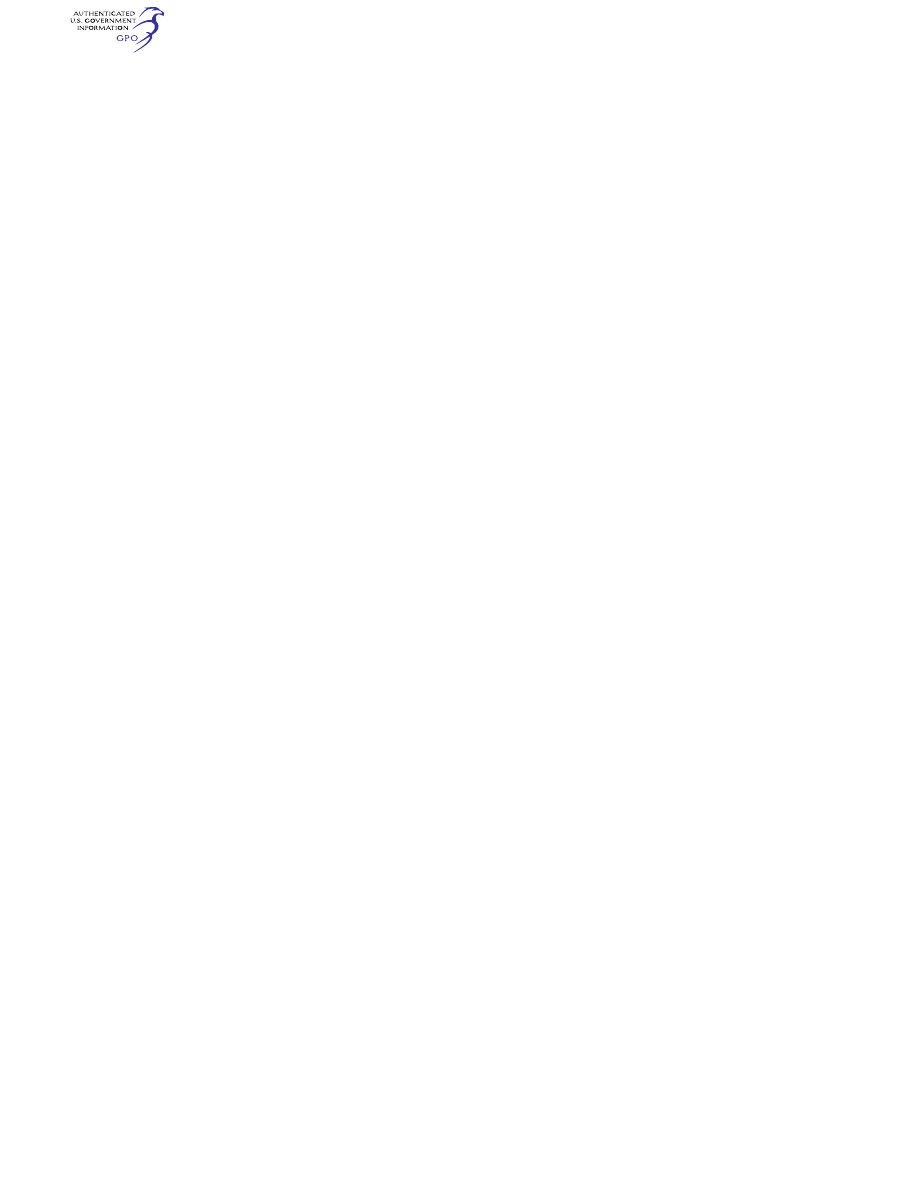
727
Federal Aviation Administration, DOT
§ 33.83
(2) Continuation of the rain ingestion
during subsequent rapid deceleration
to minimum idle, then
(3) Continuation of the rain ingestion
during three minutes at minimum idle
power to be certified for flight oper-
ation, then
(4) Continuation of the rain ingestion
during subsequent rapid acceleration
to takeoff power.
(c)
Engines for supersonic airplanes. In
addition to complying with paragraphs
(a)(1) and (a)(2) of this section, a sepa-
rate test for supersonic airplane en-
gines only, shall be conducted with
three hailstones ingested at supersonic
cruise velocity. These hailstones shall
be aimed at the engine’s critical face
area, and their ingestion must not
cause unacceptable mechanical damage
or unacceptable power or thrust loss
after the ingestion or require the en-
gine to be shut down. The size of these
hailstones shall be determined from
the linear variation in diameter from 1-
inch (25 millimeters) at 35,000 feet
(10,500 meters) to
1
⁄
4
-inch (6 millime-
ters) at 60,000 feet (18,000 meters) using
the diameter corresponding to the low-
est expected supersonic cruise altitude.
Alternatively, three larger hailstones
may be ingested at subsonic velocities
such that the kinetic energy of these
larger hailstones is equivalent to the
applicable supersonic ingestion condi-
tions.
(d) For an engine that incorporates
or requires the use of a protection de-
vice, demonstration of the rain and
hail ingestion capabilities of the en-
gine, as required in paragraphs (a), (b),
and (c) of this section, may be waived
wholly or in part by the Administrator
if the applicant shows that:
(1) The subject rain and hail con-
stituents are of a size that will not
pass through the protection device;
(2) The protection device will with-
stand the impact of the subject rain
and hail constituents; and
(3) The subject of rain and hail con-
stituents, stopped by the protection de-
vice, will not obstruct the flow of in-
duction air into the engine, resulting
in damage, power or thrust loss, or
other adverse engine anomalies in ex-
cess of what would be accepted in para-
graphs (a), (b), and (c) of this section.
[Doc. No. 28652, 63 FR 14799, Mar. 26, 1998]
§ 33.79
Fuel burning thrust augmentor.
Each fuel burning thrust augmentor,
including the nozzle, must—
(a) Provide cutoff of the fuel burning
thrust augmentor;
(b) Permit on-off cycling;
(c) Be controllable within the in-
tended range of operation;
(d) Upon a failure or malfunction of
augmentor combustion, not cause the
engine to lose thrust other than that
provided by the augmentor; and
(e) Have controls that function com-
patibly with the other engine controls
and automatically shut off augmentor
fuel flow if the engine rotor speed drops
below the minimum rotational speed at
which the augmentor is intended to
function.
[Amdt. 33–6, 39 FR 35468, Oct. 1, 1974]
Subpart F—Block Tests; Turbine
Aircraft Engines
§ 33.81
Applicability.
This subpart prescribes the block
tests and inspections for turbine en-
gines.
[Doc. No. 3025, 29 FR 7453, June 10, 1964, as
amended by Amdt. 33–6, 39 FR 35468, Oct. 1,
1974]
§ 33.82
General.
Before each endurance test required
by this subpart, the adjustment setting
and functioning characteristic of each
component having an adjustment set-
ting and a functioning characteristic
that can be established independent of
installation on the engine must be es-
tablished and recorded.
[Amdt. 36–6, 39 FR 35468, Oct. 1, 1974]
§ 33.83
Vibration test.
(a) Each engine must undergo vibra-
tion surveys to establish that the vi-
bration characteristics of those compo-
nents that may be subject to mechani-
cally or aerodynamically induced vi-
bratory excitations are acceptable
throughout the declared flight enve-
lope. The engine surveys shall be based
upon an appropriate combination of ex-
perience, analysis, and component test
and shall address, as a minimum,
blades, vanes, rotor discs, spacers, and
rotor shafts.
VerDate Sep<11>2014
09:06 Jun 28, 2024
Jkt 262046
PO 00000
Frm 00737
Fmt 8010
Sfmt 8010
Y:\SGML\262046.XXX
262046
jspears on DSK121TN23PROD with CFR